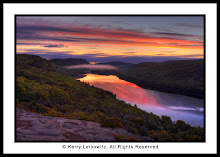It seems that bizarre philosophical thoughts always come to me when I should be sleeping. The other night my mind was wondering through random fact after random fact, when it got stuck on one. I started to think about life expectancy and how it has changed over the course of human history. With a few cultural oddities, humans now live longer than they ever have in history (as a whole). I started to wonder why.
I shrugged off the boring scientific answer that has to do with advancements in medicine and other boring, non soul-wrenching facts. I started to bend my mind in order to reach outside of the cultural box we are all placed in at birth. With that bend I started to wonder if there is, perhaps, another reason entirely behind why humans live longer now. I thought that maybe this reason is what stands behind the medical advances, what drives them.
I began to consider quality of life, and the differences between the way we live in modern western society and the ways in which people used to live in nomadic societies—notably many Native American nomadic societies. As often happens, things I have recently read (especially in Derrick Jensen’s A Language Older Than Words) started to play into my take of things. In his book, Jensen discussed how food of all sorts used to be so plentiful that many cultures spent most of their time in leisure activities. With just a bit of conservation and understanding of the environment many Native American tribes could focus on the arts, love, and nature in general instead of constantly worrying about providing for their families.
These people had time to really enjoy and experience life almost every single day. They truly LIVED every year of their lives. That is in stark contrast to the predicament western culture has gotten us into. The wondrous industrial society that so many embrace and essentially bow to makes it impossible for anyone (even people who have removed themselves from it) to truly live life every day.
The rivers that once ran so thick with Salmon that you needed only to lower a bucket into them to get dinner are now dammed, and empty. The few remaining salmon launch themselves fruitlessly at the concrete structures we have built to create ‘clean energy’ and lakes that we in turn, pollute. The fields once so thick with Bison that the ground could not be seen for miles are now empty, dusty, and dry. Those that remain walk penned and domesticated—perhaps wondering where the days of old have gone to.
I think life expectancy is higher today because it needs to be. In order for us to truly live the 30 years that our ancestors lived in 30, we need to live 80. We spend the other 50 wasting our lives in front of computers watching YouTube videos, pretending we are intimately connected to those we only communicate with on FaceBook, commuting, shopping, and wondering why our lives hold no meanings.
If we restored the environment to its former glory, and gave up our consumer driven lifestyles would we not live as long? I of course do not know this, and no one ever can. The environment is too broken, our population too large, for that to be a realistic experiment. Perhaps we should start be fixing what we have broken, and go from there.
I for one miss the days I have never seen. The days when salmon ran nearly solid in the waters and bison shook the ground with their mere numbers.
Tuesday, December 16, 2008
Do we live longer because we have forgotten how?
Posted by Amelie Lillith at 6:24 AM
Labels: bison, consumerism, happiness, life expectancy, Native Americans, salmon, western society
Subscribe to:
Post Comments (Atom)

0 comments:
Post a Comment